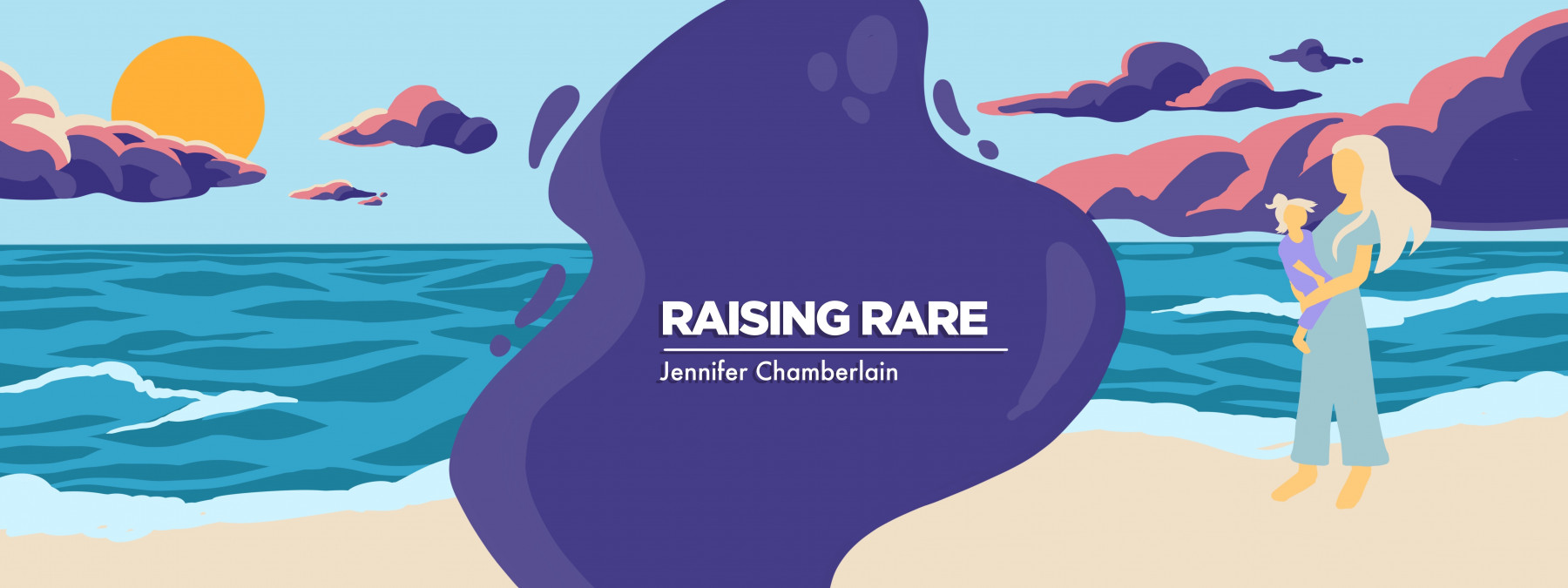The Birthday Blues: A CF Caregiver’s Perspective on PTSD
How a daughter's medical trauma caused lasting PTSD symptoms for this mother
Written by |

My chest tightens and I feel a lump in my throat as I try to race past the hospital where my daughter was born. Soon after Claire’s birth, she was transferred by ambulance from this very hospital to our regional children’s hospital, where we spent the next 68 days due to birth complications caused by Claire’s cystic fibrosis (CF). Simply driving by this site triggers something deep inside of me.
While in the neonatal intensive care unit (NICU), I was functioning on pure adrenaline, living hour to hour not knowing what would happen next. My body and mind felt surrounded by danger. I didn’t have time to process these emotions because we were in a life-or-death situation.
After Claire’s discharge, the emotional release hit me like a tidal wave. I started experiencing severe anxiety with accompanying nausea and panic attacks. I have suffered from anxiety my entire life, but this was different.
Finding answers
It wasn’t until about a year after our NICU stay that I began seeing a new therapist. I explained to her about the flashbacks and repetitive images I was experiencing. Later, she diagnosed me with post-traumatic stress disorder (PTSD). But I was instantly confused upon hearing that. Naively, I had thought of PTSD as a diagnosis for combat veterans or crime victims. But my therapist taught me that PTSD is much more complex than that.
PTSD is characterized by the occurrence of physical and mental symptoms in response to a traumatic event. When PTSD was first recognized as a separate diagnosis in 1980, a traumatic event was generally defined as an occurrence outside the range of normal human experience, such as war or natural catastrophes. It was only in more recent years that the criteria broadened to qualify a child’s life-threatening illness as a traumatic event.
Witnessing my vulnerable newborn go through multiple surgeries and other medical procedures laid the foundation for my PTSD. My therapist noted that this was common among NICU parents, even after the immediate danger has passed. Being a parent of a child with CF adds another layer as I continue to be exposed to triggering events as Claire undergoes frequent medical care.
But I am not alone. According to the National Institute of Mental Health, an estimated 3.6% of adults in the United States — about 12 million people — have PTSD in a given year. A small study in Brazil found that about one in four CF parents experienced either full or partial PTSD. Those researchers believed that PTSD often goes undiagnosed in CF caregivers.
I was lucky to have had access to a therapist who was able to identify my PTSD. This allowed me to access specific tools to help with my PTSD symptoms.
Initially, my therapist utilized cognitive behavioral therapy, which proved to be unsuccessful for me.
For now, we are using cognitive therapy, which works to modify the negative associations of the trauma to interrupt a person’s thought patterns, which helps to mitigate the symptoms. As soon as my therapist returns to in-person appointments, we plan to start eye movement desensitization and reprocessing therapy, which I look forward to sharing about as I move forward in my healing journey.
Another kind of anniversary
The constant therapeutic work is not easy, but it helps me identify triggers and understand how they affect me, and how I can live with them.
Which leads me to birthday blues.
Every year around Claire’s birthday and the anniversary of her NICU stay, I experience a period of heightened PTSD symptoms. I feel myself becoming more anxious, irritable, and on edge.
Anniversary reactions, as they’re known, and a correlated spike in symptoms is common among PTSD patients. Dates of significant traumatic events have a way of deeply embedding themselves in our memories. A 1999 study of Gulf War veterans in the The American Journal of Psychiatry indicated that about one-third of study participants showing symptoms of PTSD experienced an increase in those symptoms in the month of an anniversary of a severely traumatic event.
For me, certain dates are forever etched in my mind: the date of that ambulance transfer, the day of Claire’s first surgery, the multiple days I had to say goodbye to my baby as she was rushed to the operating room. I notice all of them, every November, even when I try not to.
Trauma has a way of shaping you in a manner that many will never understand, as it invades your subconscious on many levels.
Despite the challenges PTSD presents, it’s also given me the gift of perspective and a different level of gratitude for life. Because of this trauma, we can celebrate today how incredibly far Claire has come in the first four years of her life.
Note: Cystic Fibrosis News Today is strictly a news and information website about the disease. It does not provide medical advice, diagnosis, or treatment. This content is not intended to be a substitute for professional medical advice, diagnosis, or treatment. Always seek the advice of your physician or other qualified health provider with any questions you may have regarding a medical condition. Never disregard professional medical advice or delay in seeking it because of something you have read on this website. The opinions expressed in this column are not those of Cystic Fibrosis News Today or its parent company, Bionews, and are intended to spark discussion about issues pertaining to cystic fibrosis.








Patty Burks
Thank you for sharing this article with the rest of us. My son's birthday was just a few days ago and it always takes me back... "It's also given me the gift of perspective and a different level of gratitude for life..."